Artists unveil Scottish work at Venice Biennale
- Published
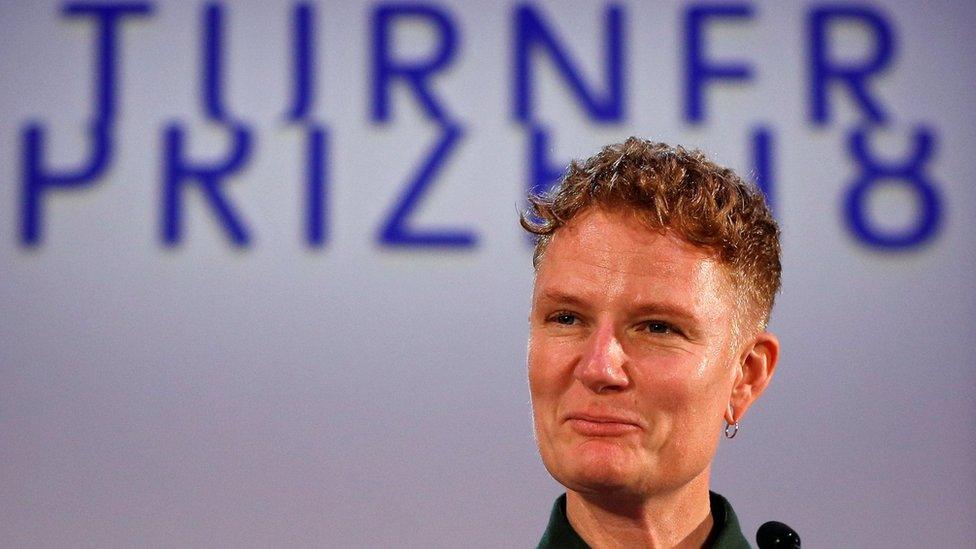
Charlotte Prodger, who won last year's Turner Prize, is representing Scotland at Venice
Turner Prize-winning artist Charlotte Prodger has unveiled the work which is representing Scotland at the 58th Venice Biennale, the world's oldest and most important international art exhibition.
The Glasgow-based artist, known for exploring queer identity, is showing a new autobiographical film SaF05.
It takes its name from the code used by scientific researchers to identify an enigmatic maned lioness from the Okavango Delta in Botswana.
The lioness is an elusive creature that the artist travelled to film last year but never managed to locate.
It is famous among scientific researchers because its maned appearance and social behaviour does not fit expectations of females of the species.
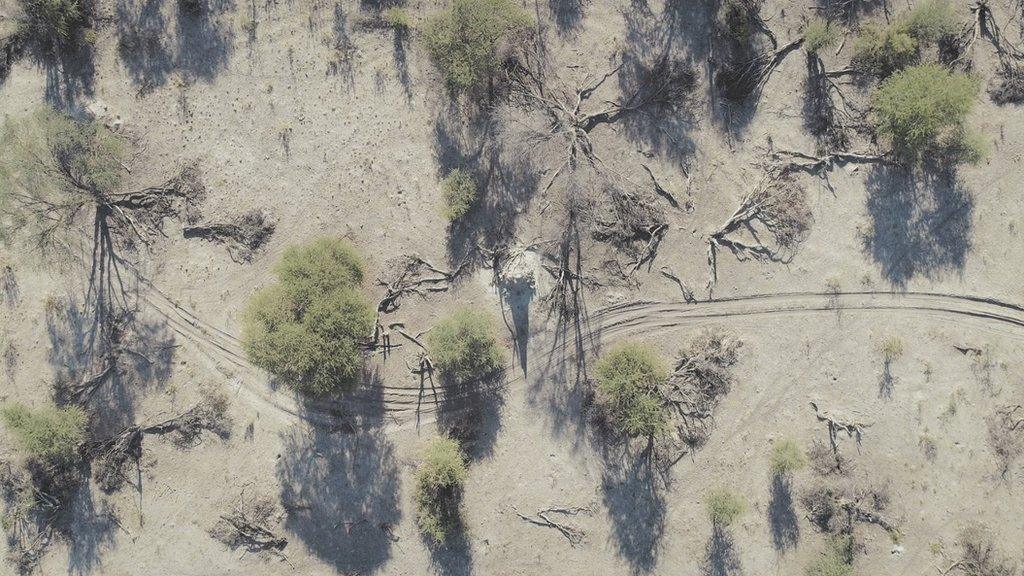
The film takes its name from the name of an elusive maned lioness in Botswana
In December, Prodger won the prestigious Turner prize for her highly personal film recalling her experiences of coming out as gay in rural Scotland.
Her latest film reflects on her childhood in Aberdeenshire, on friendship and love, as well as the relationship between territory and technology.
Using a range of camera techniques from drones and camera traps to footage shot on a hand-held iPhone it was made in the Scottish Highlands, the Great Basin Desert, the Okavango Delta and Greece's Ionian Islands.
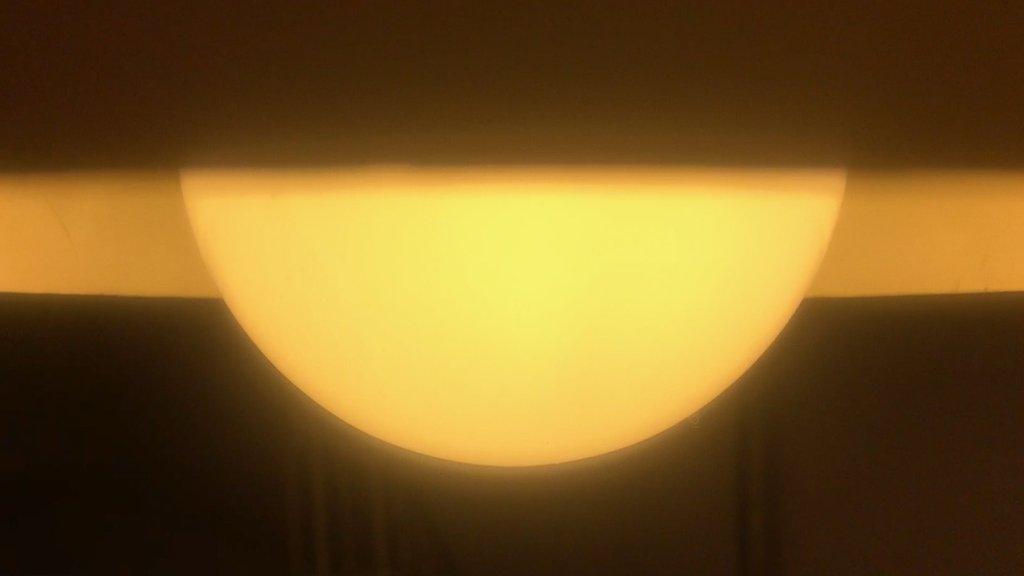
Charlotte Prodger used a range of camera techniques in her film
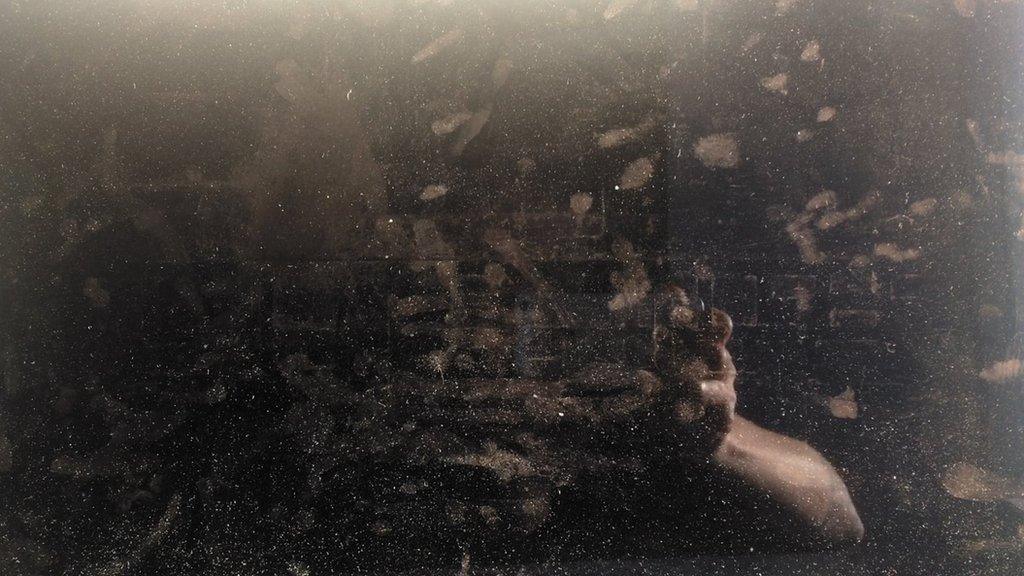
Its soundtrack includes the mating call of a cicada, a battery alarm and a bagpipe drone played by a Scottish piper.
Linsey Young, who is curating the exhibition, said: "It's a film about desire, loss, grief and the human emotion that everyone goes through and it is told with intimacy and care."
The Scotland + Venice exhibition is open to the public from Saturday and runs until 24 November at the famous Italian city's Arsenale Docks, where the everyday workshop of a Venetian boatyard has been carefully transformed into a museum-quality screening room.
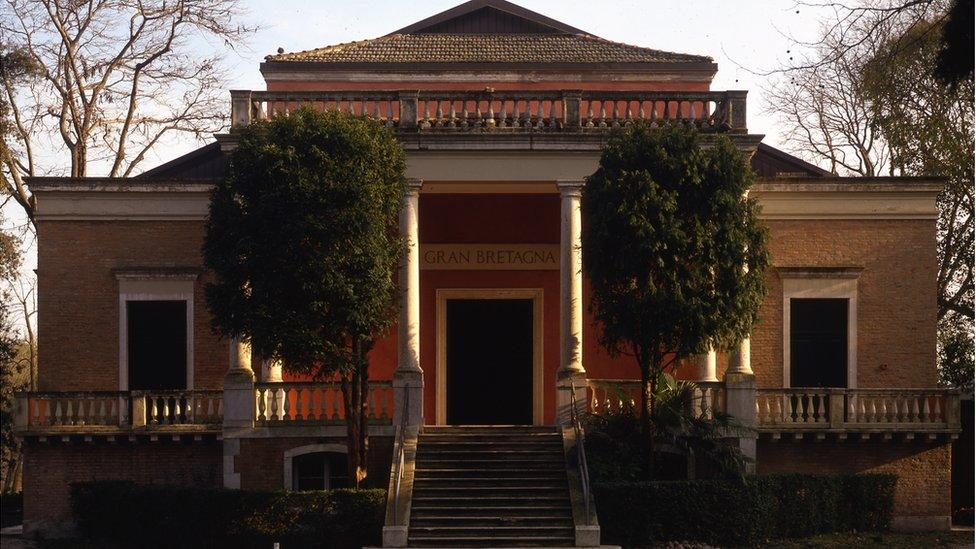
Cathy Wilkes' work will be shown at the British Pavilion
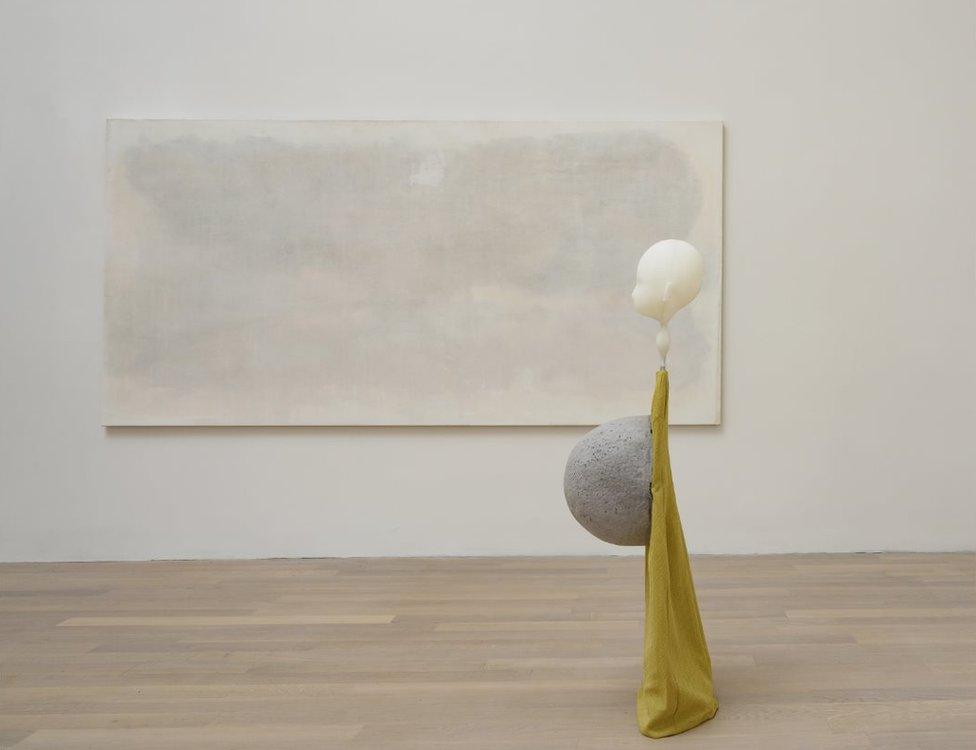
Glasgow-based artist Cathy Wilkes is exhibiting in the British Pavilion
At the British Pavilion, Glasgow-based artist Cathy Wilkes's series of six rooms of paintings, sculpture and found objects is haunting in its sparse storytelling.
It features sculptures of silent children whose papier-mache bellies seem swollen with hunger amid the everyday detritus of domestic labour.
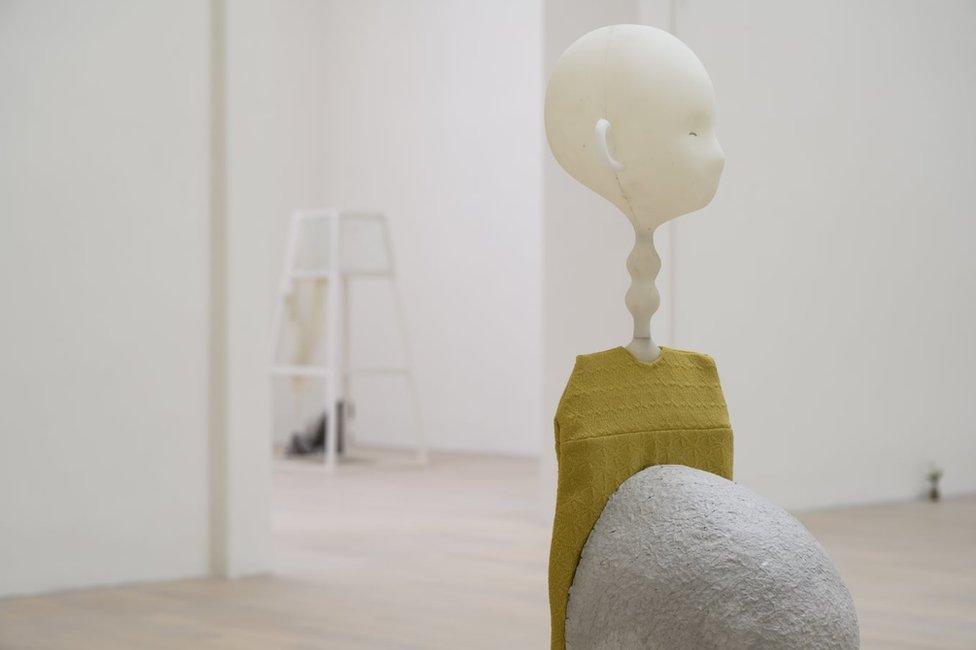
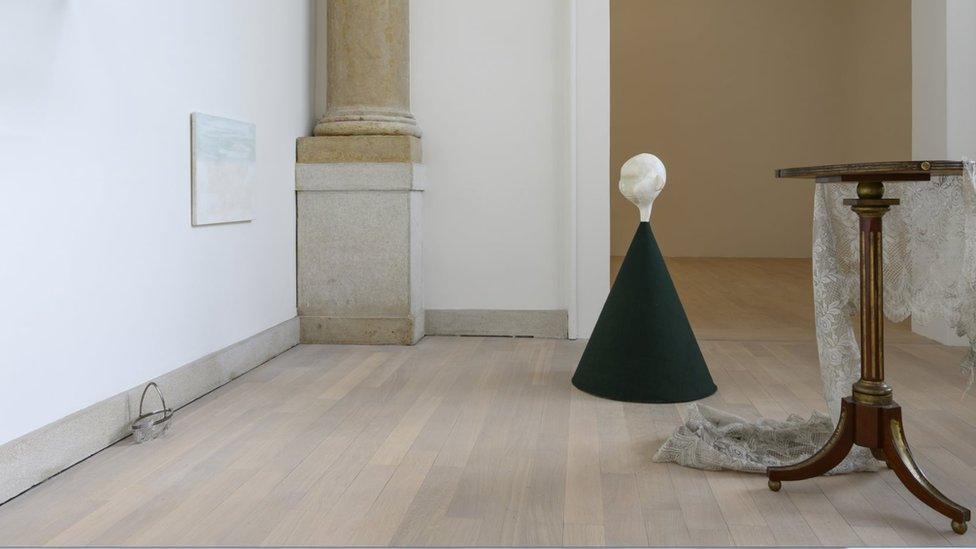
The exhibition has been curated by Dr Zoe Whitley from London's Hayward Gallery.
She said: "The work's understatement is its power. You can say something with a whisper as much as shouting at the top of your lungs."
Wilkes, who grew up in Belfast and studied at Glasgow School of Art, is showing in the neoclassical grandeur of the official British Pavilion which sits in the Giardini, the festival's public gardens.
The artist was nominated for the Turner Prize in 2008 and in 2016 won the inaugural Maria Lassnig prize.
She was part of Selective Memory, the Scottish presentation at the biennale in 2005.
Scotland has had its own presentation, as a "collateral event" at the biennale since 2003, but Scotland's artists have taken part in exhibitions at Venice since Charles Rennie Mackintosh was part of a group who exhibited there in 1899.
Two years ago, at the 57th biennale, Scottish artist Rachel Maclean turned the story of Pinocchio into a grotesque satire on the age of Donald Trump.
In the opening days of the biennale up to 25,000 art professionals descend on the city.
By the end of its run in November more than 650,000 people are expected to have visited its main exhibitions.
About 90 countries have national pavilions at the event alongside more than 20 "collateral events".
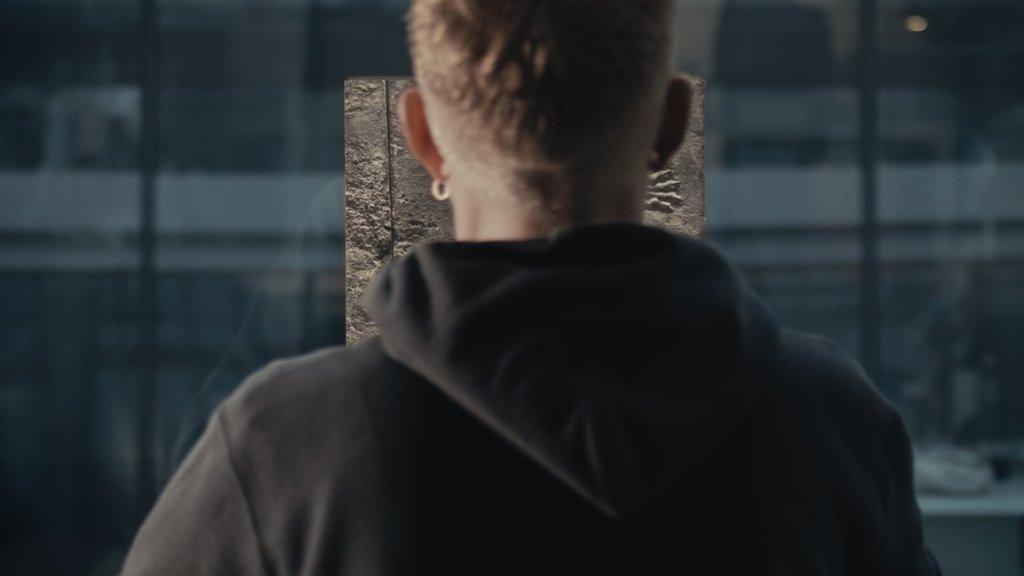
Charlotte Prodger's film reflects on her childhood in rural Aberdeenshire
Charlotte Prodger's project is curated by Linsey Young, along with Cove Park, the artists' residency centre in rural Argyll.
Throughout the summer the artist's film will also tour venues in the Highlands and Islands, from Stornoway to Shetland, beginning at The Tower Digital Arts Centre in Helensburgh on 27 June.
Ms Prodger said: "I like to spend time in sparsely-populated areas, it felt fitting to bring this work back to some of those places that have been the subject of some of my work.
"It started with Cove Park, the impact it has had on so many artists and the space that they provide for research and development."
"The projects not only highlight the importance of Scotland's contemporary artists on a world stage but the work its network of residency centres and production facilities."
Scotland + Venice also supports a professional development programme for a group of young and emerging artists and curators who work as exhibition assistants, taking care of the exhibition throughout its run and participating in the Scottish tour.
Alexia Holt, associate director of Cove Park, said: "Our point with the programme is to work with young artists from Scotland and to help establish their careers, it's a fantastic opportunity.
"We have already had them at Cove Park twice and we hope to see them again."
- Published4 December 2018
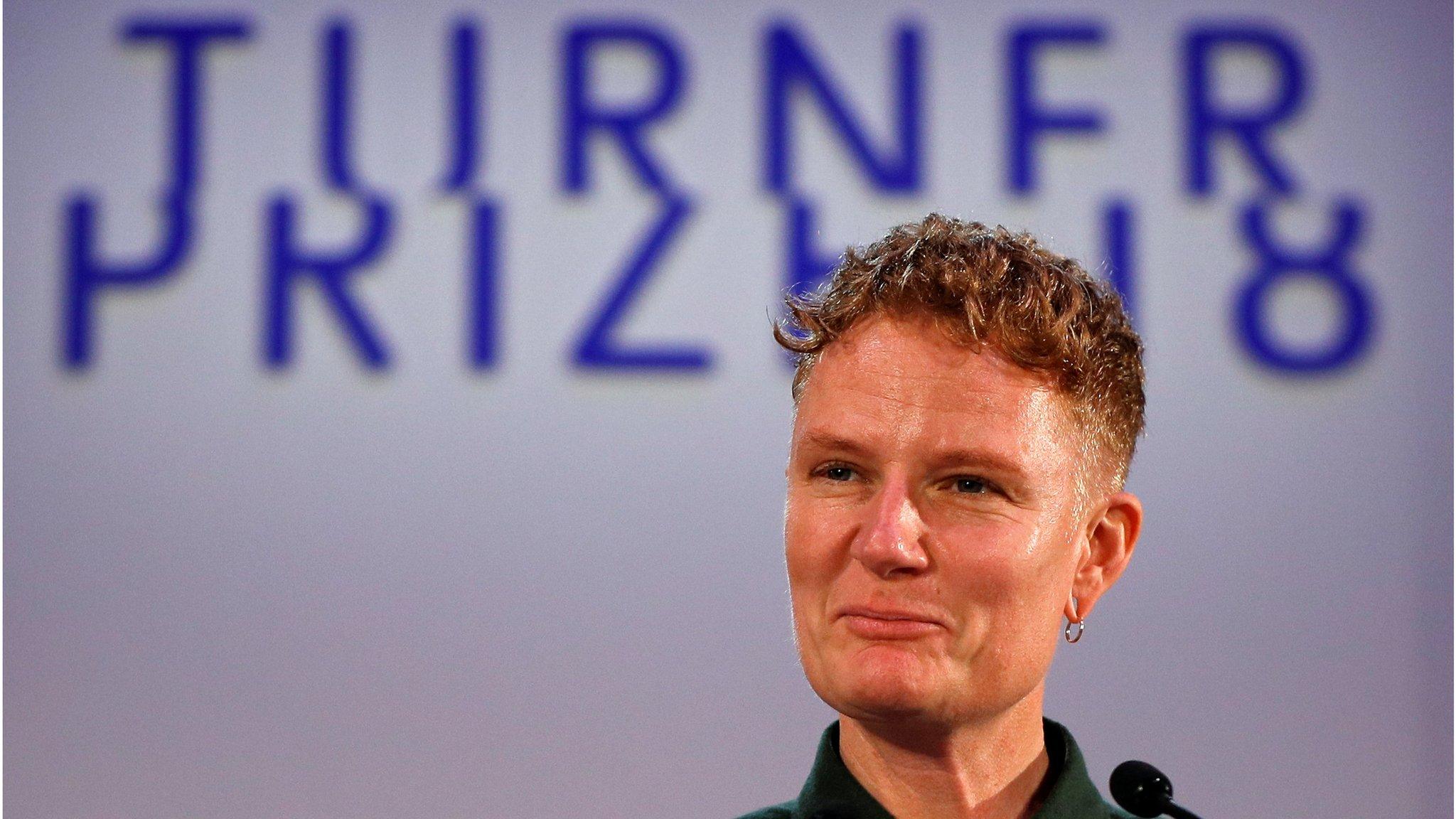
- Published9 May 2017
